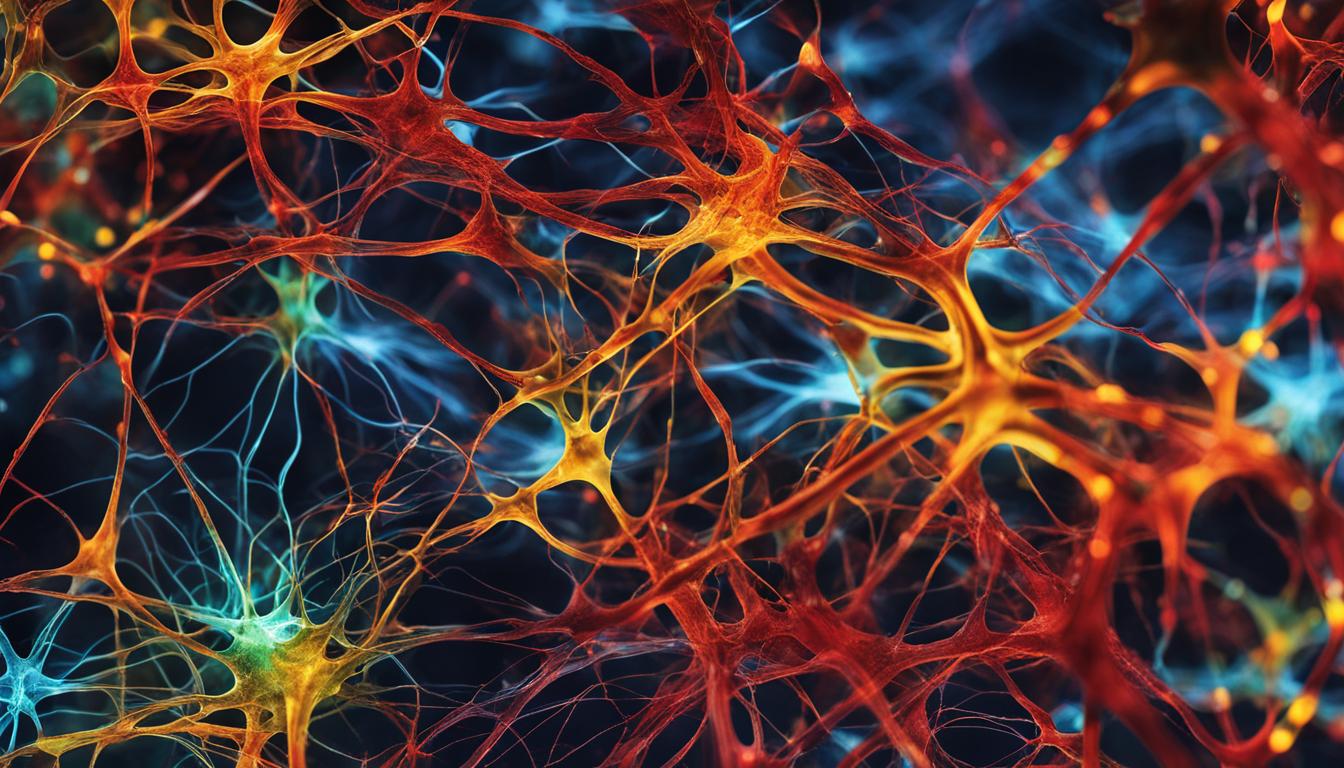Welcome to our informative article on how alcohol affects the brain and central nervous system. Alcohol consumption has a direct impact on various aspects of our neurological function, leading to significant changes in our mood, behavior, and cognitive abilities. Understanding these effects is crucial for individuals who consume alcohol and for those concerned about the potential risks associated with it.
Alcohol is classified as a central nervous system depressant, meaning it slows down brain activity and affects the functioning of neurotransmitters. This, in turn, can result in several noticeable impairments, such as reduced coordination, memory disruptions, and difficulties in thinking clearly. Additionally, alcohol consumption can have effects on other organs in the body, including increased blood pressure and heart rate.
The extent of alcohol’s impact on the brain and central nervous system can vary depending on a range of factors. These factors include the amount and frequency of alcohol consumption, overall health, genetics, and gender. It is important to note that heavy and prolonged alcohol use can lead to severe long-term damage to the nervous system, including conditions such as alcoholic neuropathy, Wernicke encephalopathy, and Korsakoff psychosis.
In the following sections of this article, we will delve deeper into the specific effects of alcohol on the central nervous system, including neurological changes, short-term and long-term damage, and the impact on the peripheral nervous system. We will also discuss the factors that influence alcohol’s effects on the nervous system and the relationship between alcohol use disorder and nervous system effects.
By understanding the effects of alcohol on the brain and central nervous system, we can make informed decisions about alcohol consumption and seek appropriate treatment if necessary. Together, let’s explore the intricate relationship between alcohol and our neurological well-being.
Alcohol’s Effects on the Central Nervous System
Alcohol acts as a central nervous system depressant, slowing down brain activity and affecting neurotransmitters. This can result in various effects on the central nervous system, including:
- Slurred speech: Alcohol affects the coordination of muscles involved in speech production, causing speech to become slurred and difficult to understand.
- Visual impairment: Alcohol can impair vision by altering the brain’s ability to process visual information, leading to blurred vision and difficulty focusing.
- Slowed muscle reactions: Alcohol slows down the transmission of signals between the brain and muscles, causing a delay in muscle reactions and movements.
- Declining coordination: Alcohol affects the cerebellum, a part of the brain responsible for coordinating movement, resulting in unsteady and uncoordinated movements.
- Memory disruptions: Alcohol can interfere with the process of encoding and retrieving memories, leading to memory lapses and blackouts.
- Reduced cognitive function: Alcohol affects the brain’s ability to process information, leading to difficulties with thinking, problem-solving, and decision-making.
The specific effects of alcohol on the central nervous system can vary depending on several factors. These include the amount and speed of alcohol consumption, the frequency of drinking episodes, and individual characteristics such as body weight, metabolism, and genetic factors.
The Brain and Alcohol
When alcohol enters the bloodstream, it quickly reaches the brain, where it exerts its depressant effects. Alcohol interacts with neurotransmitters, chemical messengers in the brain that play a crucial role in communication between brain cells. By affecting neurotransmitter activity, alcohol disrupts the delicate balance of brain function.
Despite its initial sedative effects, alcohol consumption can also lead to an increase in certain neurotransmitters, such as dopamine, which contributes to the pleasurable feelings associated with drinking. This increased dopamine release reinforces the rewarding effects of alcohol and can contribute to addiction and alcohol use disorder.
Central Nervous System Responses to Alcohol
The central nervous system responds to alcohol by slowing down its activity. This can result in a range of effects, including relaxation, lowered inhibitions, decreased anxiety, and a sense of euphoria. However, as alcohol consumption increases, the depressant effects become more pronounced, leading to impaired judgment, slowed reaction times, and loss of motor control.
It’s important to note that the effects of alcohol on the central nervous system can be unpredictable. Factors such as tolerance, medications, and pre-existing conditions can influence an individual’s response to alcohol.
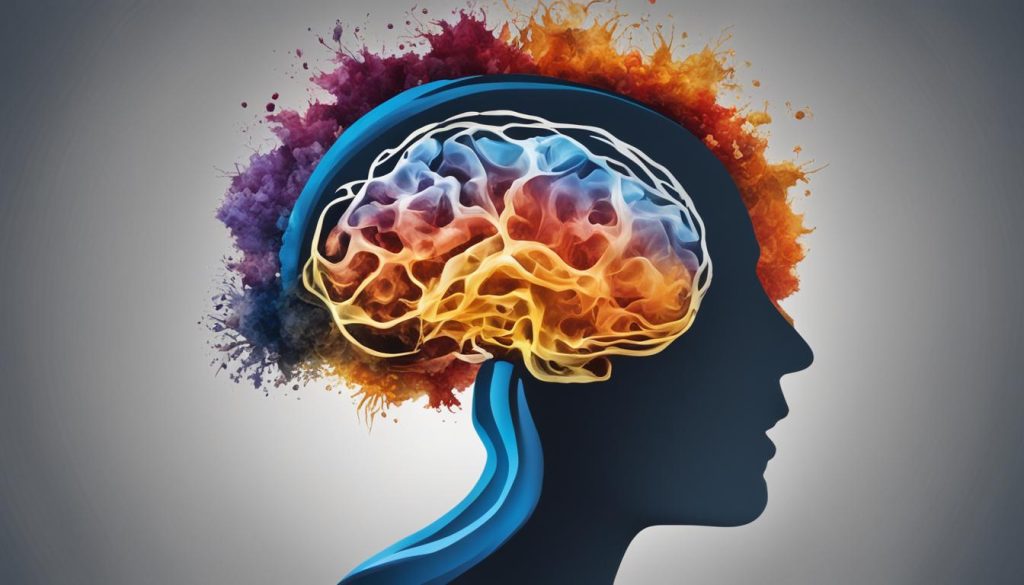
Understanding how alcohol affects the central nervous system is crucial in recognizing the potential risks and consequences of alcohol consumption. By being aware of the impact alcohol can have on brain function, individuals can make informed decisions about their drinking habits and prioritize their neurological health.
Neurological Effects of Alcohol Consumption
Alcohol consumption can have various neurological effects on the brain. One of the significant impacts is neurodegeneration, which refers to the gradual loss of structure and function in brain cells. Chronic alcohol abuse can lead to neuropathological changes, including brain atrophy and damage to specific regions of the brain.
Research has also shown a strong association between alcohol consumption and an increased risk of neurodegenerative diseases. Individuals who engage in heavy alcohol consumption may be at a higher risk of developing conditions such as Alzheimer’s disease, Parkinson’s disease, and amyotrophic lateral sclerosis.
To illustrate the neurological effects of alcohol consumption, refer to the following table:
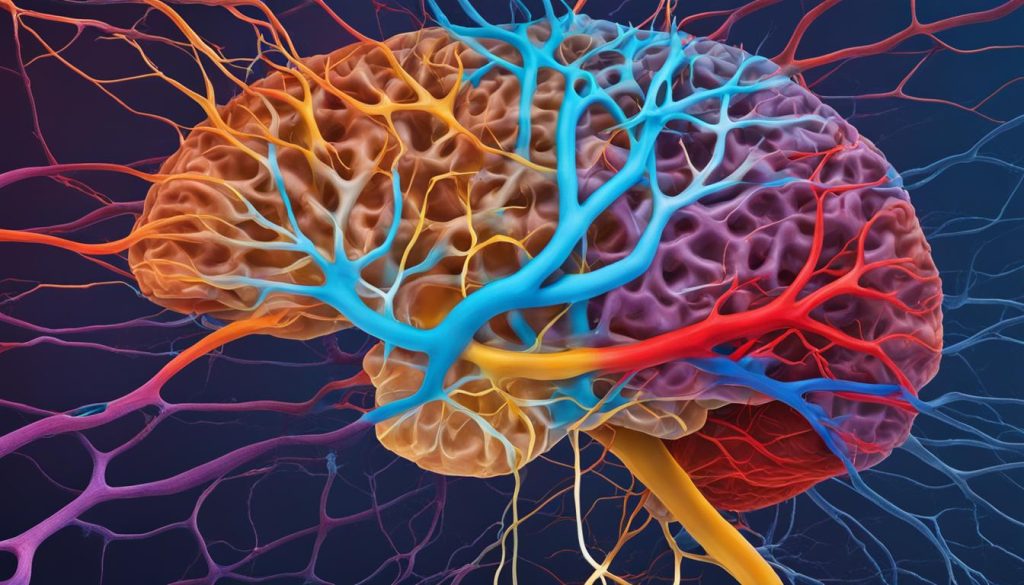
Neurological Effects of Alcohol Consumption
| Neurological Effects | Description |
|---|---|
| Neurodegeneration | Progressive loss of structure and function of brain cells |
| Brain Atrophy | Reduction in brain size and volume |
| Damage to Specific Brain Regions | Alcohol abuse can lead to damage in regions involved in memory, cognition, and motor function |
| Increased Risk of Neurodegenerative Diseases | Alcohol consumption has been linked to a higher risk of Alzheimer’s disease, Parkinson’s disease, and amyotrophic lateral sclerosis |
It is important to note that these neurological effects can have long-lasting consequences for an individual’s cognitive function, behavior, and overall quality of life. Seeking early intervention and support for alcohol use disorder is crucial to minimize the potential harm caused by alcohol-related neurologic changes.
Short-Term and Long-Term Nervous System Damage from Alcohol
Excessive alcohol consumption can have detrimental effects on the nervous system in both the short-term and long-term. In the short-term, alcohol overdose or poisoning can occur, leading to severe consequences. These include slowed or irregular breathing, irregular heartbeat, vomiting, seizures, and even coma.
On the other hand, heavy alcohol use over an extended period can result in chronic nervous system damage. Let’s take a closer look at two specific conditions that can arise from long-term alcohol abuse:
Alcoholic Neuropathy
One of the common long-term effects of heavy alcohol use is alcoholic neuropathy. This condition is characterized by nerve damage in the peripheral nervous system, resulting in various symptoms. These may include pain, numbness, muscle weakness, and problems with bladder function.
Wernicke Encephalopathy and Korsakoff Psychosis
Another significant long-term consequence of heavy alcohol consumption is the development of Wernicke encephalopathy and Korsakoff psychosis. Wernicke encephalopathy is caused by a chronic deficiency of vitamin B1 (thiamine) due to alcohol’s interference with its absorption. It can lead to changes in muscle function and eye movement.
Korsakoff psychosis, on the other hand, is characterized by memory loss and confabulation – the formation of false memories. This condition often occurs as a result of prolonged thiamine deficiency, which can damage certain brain regions.
In conclusion, excessive alcohol consumption can cause both short-term and long-term damage to the nervous system. Short-term effects include acute alcohol poisoning, while long-term effects can manifest as alcoholic neuropathy, Wernicke encephalopathy, and Korsakoff psychosis. Recognizing the risks associated with alcohol abuse and seeking appropriate help and treatment is crucial for maintaining optimal nervous system health.
Alcohol’s Impact on the Peripheral Nervous System
Alcohol not only affects the brain and central nervous system but also has an impact on the peripheral nervous system. The peripheral nervous system consists of all the nerves in the body except for the brain and spinal cord. Chronic alcohol abuse can lead to a condition known as alcoholic neuropathy, which causes nerve damage in the peripheral nervous system.
The symptoms of alcoholic neuropathy can vary and may include pain, numbness, tingling sensations, muscle cramps, weakness, and bladder and bowel dysfunction. These symptoms can significantly impair a person’s quality of life and daily functioning.
Reducing alcohol consumption can help halt the progression of symptoms and prevent further nerve damage. However, it’s important to note that nerve function that has already been lost cannot be restored.
Proper diagnosis and management of alcoholic neuropathy are crucial. If you’re experiencing any of these symptoms and have a history of heavy alcohol use, it’s essential to seek medical attention and consult with a healthcare professional. They can provide appropriate guidance and support to manage the condition effectively.
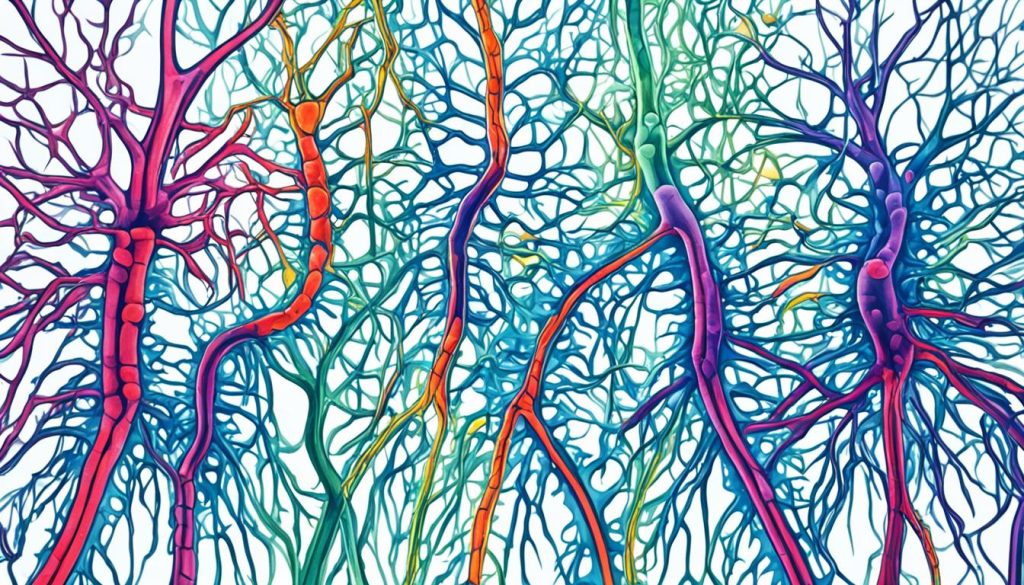
Understanding the impact of alcohol on the peripheral nervous system can help raise awareness about the potential risks associated with excessive alcohol consumption. By taking proactive steps to reduce alcohol intake and seek appropriate treatment, individuals can protect their nervous system and promote better overall health and well-being.
Factors Affecting Alcohol’s Effects on the Nervous System
The effects of alcohol on the nervous system can vary depending on several factors. These include:
- Overall volume and speed of alcohol consumption: The amount of alcohol consumed and the rate at which it is consumed can determine the intensity of its effects on the nervous system. Higher volumes of alcohol consumed in a shorter period can result in more pronounced neurological changes.
- Frequency of drinking episodes: Regular or heavy drinking can lead to cumulative damage to the nervous system over time, increasing the likelihood of long-term neurological effects.
- Presence of food in the stomach: Consuming alcohol on an empty stomach can accelerate its absorption into the bloodstream, potentially intensifying its impact on the nervous system.
- Individual characteristics: Factors such as size, weight, age, gender, and genetic background can influence an individual’s tolerance to alcohol and the way their nervous system responds to its effects. Women and girls, for example, tend to experience more significant effects from alcohol consumption compared to men.
- Current physical and mental health: Pre-existing conditions or medications can interact with alcohol, amplifying its effects on the nervous system. Additionally, individuals with compromised physical or mental health may be more susceptible to alcohol’s impact.
Understanding these factors is important in recognizing the potential risks associated with alcohol consumption and identifying strategies for responsible drinking.
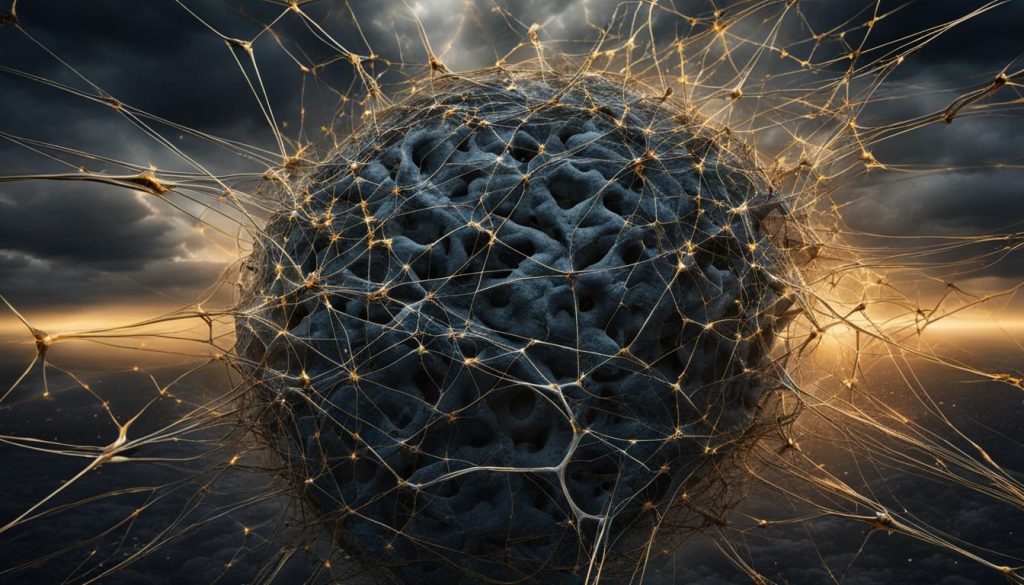
Alcohol Use Disorder and Nervous System Effects
Alcohol use disorder is a serious clinical condition characterized by the inability to control alcohol consumption. Individuals who struggle with alcohol use disorder are at a higher risk of experiencing severe nervous system effects due to their heavy and consistent drinking habits.
The nervous system damage caused by alcohol can have far-reaching consequences on both the physical and mental health of individuals. Chronic alcohol abuse can lead to a variety of neurological disorders, such as alcoholic neuropathy, which manifests as pain, numbness, muscle weakness, and bladder problems. Additionally, long-term alcohol use can result in Wernicke encephalopathy, a condition caused by a chronic deficiency in vitamin B1, leading to muscle and eye function changes. Korsakoff psychosis, characterized by memory loss and confabulation, is another potential consequence of prolonged alcohol abuse.
It is crucial to recognize the adverse effects of alcohol use disorder on the nervous system and overall quality of life. Seeking professional help and support is essential in managing alcohol use disorder and mitigating further damage to the nervous system.
Conclusion
Excessive alcohol consumption can have significant effects on the brain and central nervous system. It can lead to short-term effects such as impaired coordination and memory disruptions, as well as long-term effects including alcoholic neuropathy, Wernicke encephalopathy, and Korsakoff psychosis.
Factors such as the amount and frequency of alcohol consumption, individual characteristics, and overall health can influence the extent of these effects. Therefore, it is important to be aware of the potential risks of alcohol consumption and make informed decisions about alcohol use.
If you or someone you know is struggling with alcohol use disorder, seeking help and support is essential. Treatment options are available to help individuals overcome alcohol addiction and prevent further damage to the nervous system.

